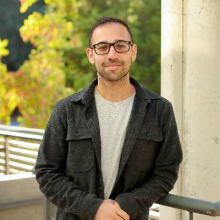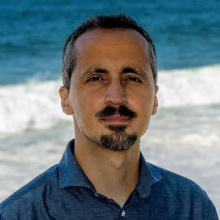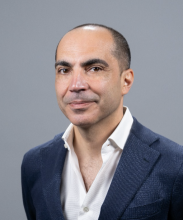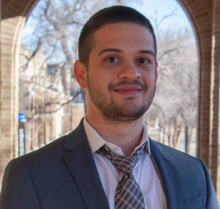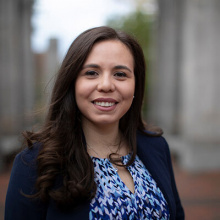CPS Events
Low-Power Language Models
Abstract
This talk explores how to scale neuromorphic computing up to large-scale applications. While training large language models costs in excess of millions of dollars, the human brain does remarkably well on a power budget of 20 watts. We explore the space of neuromorphic algorithms, from spiking neural networks to lightweight language models, and learn how to span the stacks of computation to develop models that are competitive with those developed by companies that are far richer than academic labs.
Bio
Jason is an Assistant Prof with the ECE Department at UC Santa Cruz. His research is focused on brain-inspired computing. He's won a bunch of awards, failed a bunch of other stuff, and pretends like he knows things on the advisory boards of a bunch of companies.
Scalable Marine Robotics: Advancements in Perception, Navigation, and Control for Ocean Exploration
Abstract
The ocean is vital to all living beings but still needs to be explored, leaving many questions unanswered. Fortunately, underwater robotics has greatly improved ocean exploration by accurately mapping the seafloor in high resolution and tracking animals in midwater. However, these platforms are often too expensive to build and operate, limiting ocean exploration and discovery. To address this issue, we need to lower the barriers to entry, particularly for scientific research requiring high-resolution measurements on a large scale. In this talk, I will share some of the collaborative research work that our team, the CoMPAS lab at MBARI, has been involved in addressing precision control, robust navigation, and machine perception based on novel robotics learning techniques. These are just a few examples of how marine robotics research can help close the ocean exploration gap.
Bio
Giancarlo Troni is a Principal Engineer at the Monterey Bay Aquarium Research Institute (MBARI), where he leads robotics research in the CoMPAS Lab, focusing on the perception, estimation, and control of underwater robotics systems. He has a Ph.D. from Johns Hopkins University and has previously served as an Associate Professor with the Department of Mechanical Engineering, Pontificia Universidad Católica de Chile (PUC), Santiago, Chile. Currently, Giancarlo is dedicated to developing better tools and methods for small, low-cost autonomous machines that can scale ocean exploration.
Automatic Control in the Era of Artificial Intelligence
Abstract
In an era when Artificial Intelligence is seen as a universal solution, this presentation critically examines its role in automatic control, focusing on optimal control techniques. It traces the evolution of optimal control from traditional, model-based approaches to modern, data-driven methods powered by AI. The talk highlights how theoretical foundations have been linked with computational capabilities, a relationship that has evolved over time. It discusses scenarios where AI-driven approaches can outperform classical methods and examines cases where the AI hype overshadows practical benefits. The presentation further explores applications in self-driving cars, advanced robotics, and energy-efficient systems. Looking forward, it identifies future directions including the design of learning control architectures that integrate predictive capabilities at every level, enabling systems to autonomously refine performance through learning and interaction with their environment.
Bio
Francesco Borrelli received his ‘Laurea' degree from the University of Naples Federico II, Italy, and his PhD from the Automatic Control Laboratory at ETH Zurich in 2002. He is currently a Professor at the Dept. of Mechanical Engr. at the University of California, Berkeley, USA, where he conducts research in the field of predictive control. Prof. Borrelli has authored over 200 publications in the field of predictive control and is the author of the book Predictive Control. He has received several awards for his contributions to the predictive control field, including the 2009 NSF CAREER Award and the 2012 IEEE Control System Technology Award, and was elected IEEE Fellow in 2016. In 2017, he was awarded the Industrial Achievement Award by the International Federation of Automatic Control (IFAC) Council. Prof. Borrelli has been a consultant to major corporations since 2004 and pioneers predictive control in self-driving vehicles, solar plants, and energy-efficient buildings. He founded BrightBox, co-directed Hyundai’s Berkeley center, and launched WideSense.
Applying Digital Twin Technology to Rotating Mechanical Systems and Space Applications
Abstract
Digital twin (DT) technology is transforming industries by creating digital replicas of physical entities, yet its full potential is hindered by the complexity of modeling and integrating diverse data types. The research focuses on enhancing DT applications through the integration of verification and validation (V&V) with Weighted Flow Matching (WFM). It examines how V&V improves data reliability in rotating mechanical systems and assesses WFM’s role in refining data-driven generative modeling. A meta-learning-based reweighting algorithm (LRW) is introduced to dynamically assign weights to training samples based on their gradient directions, thereby optimizing model robustness against noisy or biased data. Experiments involving rotating machinery and space applications demonstrate improved predictive accuracy, reliable fault diagnosis, and effective system analysis. This integrated approach strengthens DT technology by ensuring more precise system analysis, enhanced model predictive control, and robustness in complex scenarios.
Bio
Yasar Yanik is a Postdoctoral Researcher in the Dept. of Applied Mathematics at UCSC, where he leads research on Digital Twin Enabled Autonomous Control for On Orbit Spacecraft Servicing (SURI). His research spans rotating machinery, photovoltaic systems, and spacecraft subsystems, integrating data-driven modeling with physics-based simulations to enhance performance and reliability. He has collaborated with institutions such as Pantex, Sandia National Laboratories, and the Air Force Research Laboratory to advance cutting-edge engineering solutions. Yanik holds a Ph.D. in Mechanical Engineering from Texas Tech University, where he developed high-fidelity digital twin frameworks for predictive diagnostics and health management of energy and mechanical systems.
Design of Resilient, Engineered, Autonomous, and Multifunctional (DREAM) Structures
Abstract
This talk will discuss strategies for the design of a new generation of intelligent structures equipped with sensors and control devices that can react in real time during multiple hazards. We create these adaptive structures with human-like capabilities by using agent-based modeling, vibration control, and evolutionary game theory. We modified a patented neural dynamic model for seismic design optimization of diagrid buildings, rocking-steel braced frames, and related structural systems. We also investigate integrative design methods to simultaneously design the structure and control devices, optimal placement of sensors, and distribution of tasks during failure mechanisms. We study control methodologies for novel testing technologies such as real-time hybrid simulation that combines numerical and experimental substructures. This unique intersection allows for design studies looking at aerodynamic mitigation through the origami-inspired morphing building envelope, and biomimicry design applying aquatic life adaptations and patterns into urban planning and structural design.
Bio
Mariantonieta Gutierrez Soto, Ph.D., is an assistant professor of Engineering Design at Penn State. She also holds an affiliation in the Dept. of Architectural Engr. and the Dept. of Civil and Environmental Engr. at Penn State. She is the Director of the DREAM Structures Lab. Dr. Gutierrez Soto holds a B.S. in Civil Engr. from Lamar University, Beaumont, Texas, and a M.S. and Ph.D. degree in Civil Engr. with a focus on structures from the Ohio State University under the mentorship of Prof. Hojjat Adeli. She was the recipient of the 2023-2024 Faculty Engagement Award by Penn State’s Teaching and Learning with Technology Center. She also received the “Teacher Who Made a Difference” award in 2020 and the “Faculty Research Mentor of the Week” award in 2019 from the University of Kentucky. She received the Presidential Fellowship in 2016.

